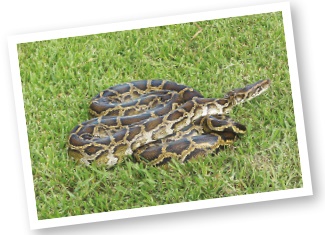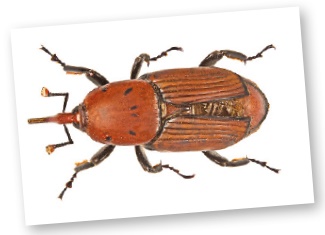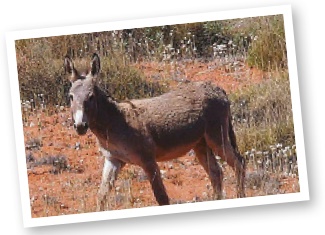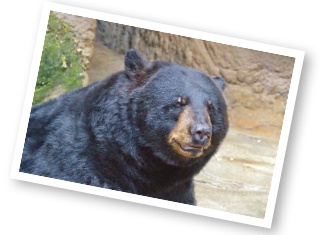
Feature pest control | PPC88 September 2017
Do you struggle to leave work at home when you go away on holiday? Rather be doing a bit of pest management than topping up the tan?
No, we don’t either. Regardless, we press on...
Here are PPC’s top holiday pests you may (or may not) fancy wrestling with while on holiday.
Florida, USA: Burmese python (Python bivittatus)

Ever since the garden of Eden, humans have had an uneasy relationship with snakes. Back in the 1980s, there was a craze of importing Burmese pythons from Southeast Asia as pets. Problem is, when your 1-foot companion grows into a 16-foot beast that looks at you like you're a giant pork chop, a sharp feeling of buyer's remorse kicks in.
In 2000, officials recognised that released and escaped pythons had become a breeding population. Estimates range from 30,000-300,000 pythons in Florida, many causing a nuisance, particularly to local wildlife.
US pest technicians have tried trained dogs and traditional trapping methods to bring numbers under control but to no avail. In 2013, officials announced the Python Challenge – a month-long event with cash prizes for people who managed to rid Florida of a python. 1,600 participants registered. 68 pythons were captured, proving that the python is as slippery as... well… you know. If they rerun the event, you could claim a ‘business trip’.
Spain: The red palm weevil (Rhynchophorus ferrugineus)

There’s probably an argument that the worst pest in Spain is us tourists that make Spain our number one holiday destination. If you want to make up for last year where you ended up vomiting sangria on a beautiful white-sand beach, then maybe you can turn your attention to the “picudo rojo” - or invasive Red Palm Weevil.
The red palm weevil has been making European palm trees their preferred holiday destination since 1994. Spanish coconut, date and oil palm plantations have been severely affected by the pest – and what’s a traditional Summer holiday without palm trees?
The treatment for palm weevils is more tree surgery than pest control as we know it. Surveying requires getting up to the top of a palm tree and looking for evidence of feeding tunnels. Insecticide is applied through funnels in the infested trees trunk. If you fancy spending your holiday up a palm tree, rather than lying under it, then maybe you can spend next summer routing out weevils. Pina colada drinkers everywhere will thank you for your service.
Australia - Feral donkeys (Equus asinus)

Donkeys were brought over to Australia back in 1866 as pack animals. Horses would often die from the poisonous vegetation, but the sturdier donkeys proved an invaluable resource to colonists in Western Australia.
Unfortunately, donkeys escaped, reproduced, and began being a real problem for indigenous wildlife. Now there are tens of thousands of feral donkeys wandering the Australian outback – officially declared a pest in 1949.
I know what you’re thinking – there’s a million exciting, terrifying and deadly pests in Australia – why go halfway around the world to control donkeys? Well, what if I said sharpshooters are being employed to control donkeys from helicopters? Hundreds of donkeys have been culled from the Kakadu National Park under a feral animal eradication program. That’s one way to do some sightseeing.
Let’s hope we don’t have any Australian pest controllers coming here for their holidays – Skegness would never be the same again!
Canada - black bears (Ursus americanus)

It’s the holiday of a lifetime. Just imagine it; crystal-clear lakes, pristine mountainous beauty spots, and… bears. Nothing ruins a camping trip like being mauled to death by a bear. And it’s not just in the Rocky Mountains or national parks where bears can interrupt an otherwise picturesque day.
Urban bear control is big business in Canada, with black and brown bears wandering their way into towns and making a nuisance of themselves anywhere from plantations, to landfills, to playgrounds. During the Spring season, it’s not uncommon for schools to be put on lockdown because of a wandering bear. 20 bear-related deaths were recorded in North America between 2010 and 2017 (although one of those deaths was someone that was keeping a black bear as a pet, known as ‘Ceasar the Wrestling Bear’).
Want to see if you’re smarter than the average bear? We wouldn’t recommend it. To hunt black bears, you’ll need a Non-resident Black Bear Hunting Licence Validation Certificate, a black bear hunting licence and to jump through a whole host of other hoops. We’d suggest leaving this kind of pest management to the locals. Hunt for some Canadian bacon and maple syrup instead.
Want to join the conversation? Tweet @britpestcontrol
Follow us on Twitter
 Scott Johnstone
Scott Johnstone
Content and Communications Officer
15 September 2017 | PPC88
Source: PPC88